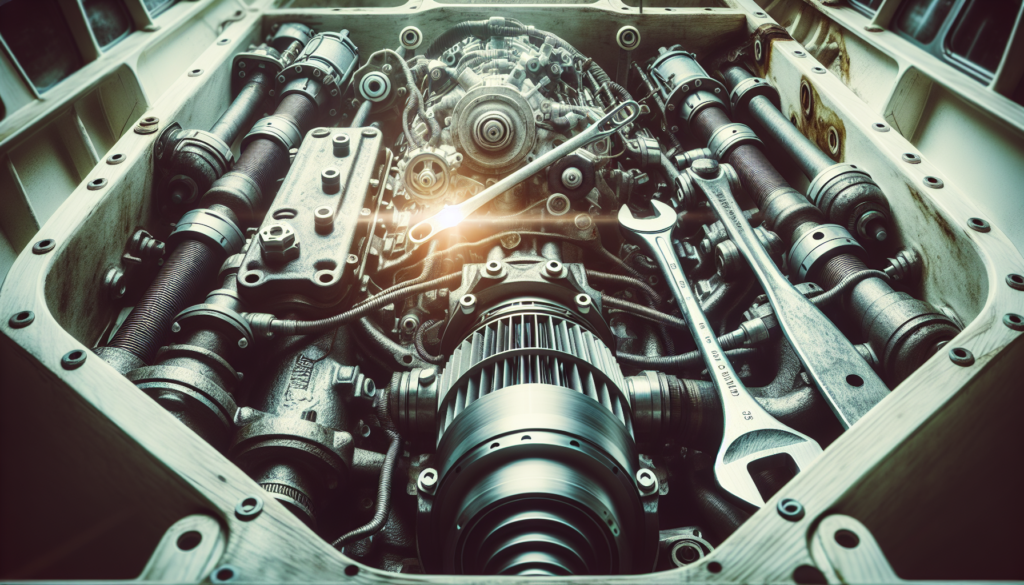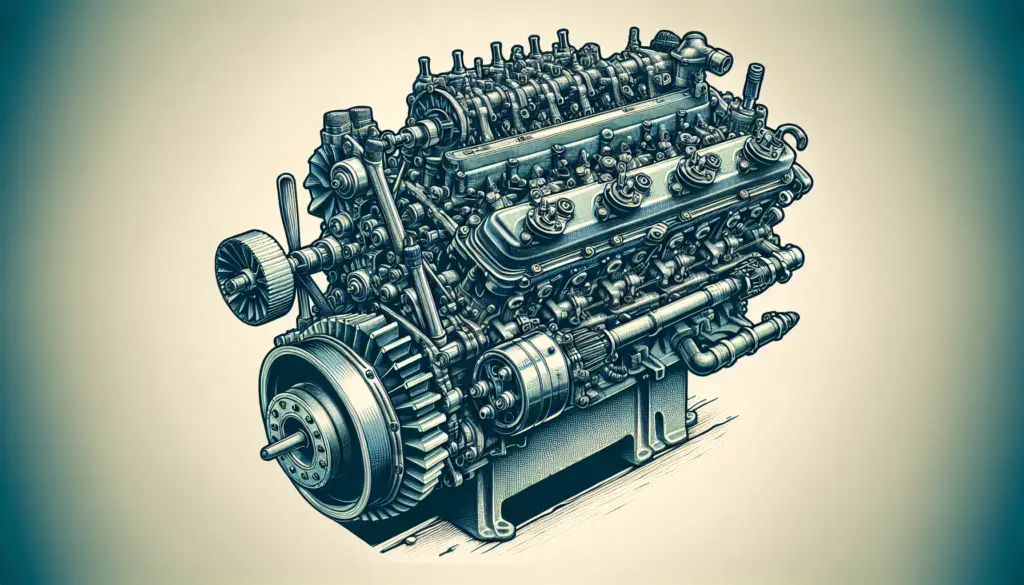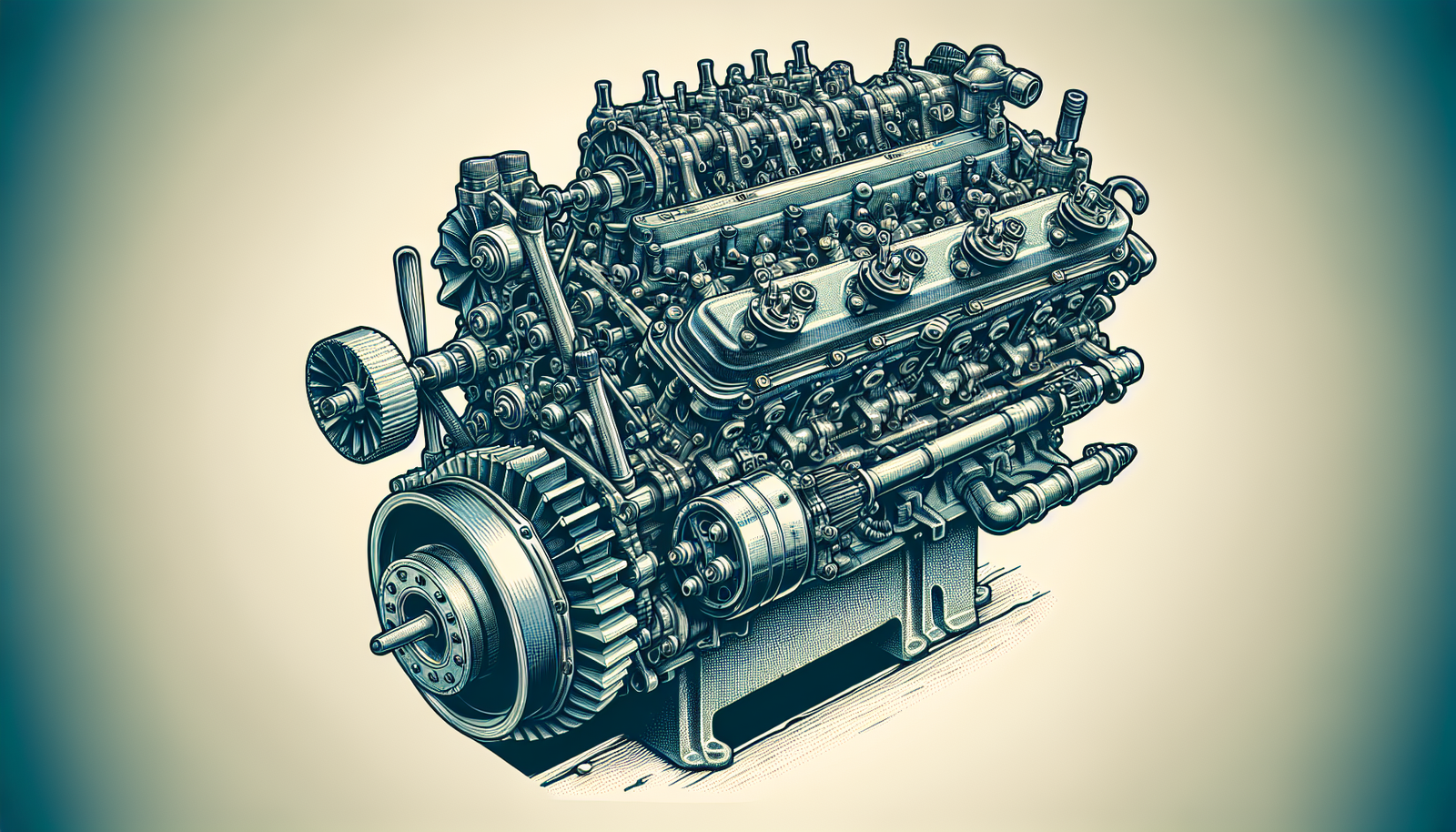Sailing smoothly across the water can be such a delightful experience until, suddenly, your boat starts losing power. In that moment of panic, wouldn’t it be great to have a series of checks and solutions at your fingertips? In the helpful guide, “Boat Engine Troubleshooting for Lack of Power”, you will learn about common symptoms, potential causes, and most importantly, how to rectify the issue. From understanding the intricacies of the fuel system to providing advice on maintaining the mechanical parts, this article is essential reading for any boat owner. Don’t let engine problems stand in the way of your next sailing adventure!

Understanding Basics Of Boat Engines
As the heart of your boat, the engine is a crucial component that determines its performance and longevity. Understanding its basics can equip you with the knowledge you need to maintain it at its best and keep it running smoothly.
Components of a Boat Engine
Your boat engine is a complex machine made of numerous components that all work together. Here, we’ll talk about a few key ones. You’ve got the cylinder block, which houses cylinders where fuel burning occurs. Then there’s the piston, a movable part that travels up and down inside the cylinder. You also have the crankshaft, which converts the piston’s vertical movement into rotational motion. Other essential components include the connecting rod that links the pistons to the crankshaft, the camshaft which controls the intake and exhaust valves, and many others.
Basic Operations of a Boat Engine
Boat engines operate very similarly to car engines, and many of the same principles apply. The key operation is the internal combustion of fuel in the engine’s cylinders through a four-stroke cycle: intake, compression, combustion, and exhaust. Each phase is crucial for the engine’s work and is carried out by different components of the engine.
Types of Boat Engines
Different types of boat engines exist, including outboard, inboard, stern drive, and jet engines. Outboard engines, which are the most common, are located outside the boat’s hull. In contrast, inboard engines are placed within the boat, making them more suited for larger boats. Stern drives combine features of both outboard and inboard engines, while jet boat engines use a jet of water for propulsion.
Common Reasons for Boat Power Loss
Engine power loss can be a common issue in boats, and multiple factors can cause it.
Engine Overheating
Overheating is a common issue that can result in a loss of power. Faulty thermostats, clogged passageways, damaged impellers, or worn-out water pumps can all cause overheating problems.
Fuel System Issues
Issues with the fuel system such as blockages, dirty fuel filters, and fuel pump malfunctions can lead to power loss.
Ignition Failure
An ignition failure can cause your boat to lose power. This can be due to a range of factors, including a malfunctioning ignition switch, poor quality spark plugs, or faulty ignition coils and wires.
Impeller Damage
A damaged impeller can lead to a decrease in engine power, as it contributes to the valuable cooling function of the engine water pump.
Exhaust System Blockage
An obstructed exhaust system can result in the accumulation of harmful gases, leading to a drop in engine power output.
Identifying Early Signs of Power Loss
Recognizing the early signs of power loss is essential for effective troubleshooting and prevention.
Reduced Engine Performance
You may first notice a drop in engine performance. Your boat may begin to lose speed, or the engine may struggle to deliver optimum power.
Unusual Engine Sounds
An unusual or unfamiliar sound from your boat engine may signal a problem. This may include knocking, hissing, popping, or grinding noises.
Excessive Exhaust Smoke
A clear sign of a problem is excessive smoke from the exhaust. Black smoke can suggest inadequate combustion, while white or blue smoke might indicate coolant or oil leaks, respectively.
Engine Shuts Off During Operation
If your engine shuts off unexpectedly during operation, this can indicate a severe issue that requires immediate attention.
Preventive Measures to Avoid Engine Power Loss
Prevention is always better than a cure, particularly when it comes to maintaining your boat engine.
Regular Boat Maintenance
Regular maintenance is the cornerstone of an efficient running engine. Proper upkeep includes regular oil changes, tune-ups, and inspections – helping you spot a problem early and avoid more costly repairs down the line.
Proper Engine Cooling
Ensure your boat engine gets sufficient cooling by regularly inspecting and maintaining the cooling system, including the pump impeller and the thermostat.
Routine Check of Fuel System
Regularly inspecting the fuel system is also crucial. This includes checking the fuel filters and ensuring a functional and efficient fuel pump.
Keeping the Exhaust Path Clean
Keeping the exhaust path clear of any blockages ensures your engine releases its exhaust gases efficiently.

Troubleshooting Engine Overheating
If you experience engine overheating, the following steps can help you troubleshoot the issue.
Checking the Cooling Systems
Ensure that the cooling systems are functioning correctly. This includes the water pump, the coolant level, and the radiator.
Inspecting for Any Impeller Damage
A damaged impeller is a common cause of engine overheating. If there’s any damage, it needs immediate replacement.
Verifying the Thermostat Operation
A malfunctioning thermostat can prevent the coolant from reaching the engine, leading to overheating. Check its operation and replace it if necessary.
Addressing Fuel System Issues
If you suspect your boat is losing power due to fuel system issues, here’s how you can address them.
Checking for Clogged Fuel Filters
A clogged fuel filter can hinder the flow of fuel to the engine. Check your fuel filters regularly and replace them when necessary.
Inspecting the Fuel Pump
A faulty fuel pump can result in inadequate fuel supply to the engine. Regular inspection and maintenance of the fuel pump can prevent this issue.
Verifying Fuel Quality
Poor fuel quality can also hinder your engine’s performance. Always ensure that you use high-quality fuel suitable for your engine.
Dealing With Ignition Failure
Ignition failure is a common reason for engine power loss. Here are some ways to address it.
Checking the Spark Plugs
Inspect your spark plugs regularly – they’re essential for a well-functioning ignition system. Dirty or worn-out spark plugs can hinder ignition, so replace them as needed.
Inspecting Ignition Coils and Wires
Faulty ignition coils and wires can also cause ignition failures. Regular inspection and timely replacement can help prevent these problems.
Troubleshooting Ignition Switch
A malfunctioning ignition switch can result in no spark being generated. If you suspect an issue, have the switch checked and repaired or replaced as necessary.
Resolving Impeller Damage
A damaged impeller can result in a considerable decrease in engine performance. Here’s how to resolve this issue.
Identifying Damages to Impeller
Regular inspection can help you spot impeller damage early. Look out for wear and tear, cracks, or missing blades.
Replacing the Impeller
If the impeller is damaged, it needs to be replaced. Regular replacement of the impeller is also a good preventive measure.
Preventing Future Impeller Damage
Avoid future impeller damage by ensuring a failsafe engine cooling system. This includes maintaining a clean seawater intake and running the engine at an optimal temperature.
Fixing Exhaust System Blockage
An obstructed exhaust system can impair your engine performance. Here’s how to fix this problem.
Identifying Potential Blockages
Examine your exhaust system regularly for any signs of blockages. This could include debris, buildup of carbon, or any other obstructions.
Removing and Cleaning Exhaust Components
Clean out your exhaust system regularly to remove all blockages and enable efficient expulsion of exhaust gases.
Preventing Future Blockages
Prevent future blockages by keeping your boat engine properly maintained and serviced.
Professional Help For Serious Engine Issues
Sometimes, despite your best efforts, the issue may be too complex for you to handle on your own, and professional help may be necessary.
When to Call a Professional
If your engine loses power suddenly or you are unable to identify or solve the issue on your own, it’s time to seek professional help. Ignoring or improperly handling serious engine issues can lead to more severe damage and higher repair costs.
Choosing the Right Professional for Your Boat
Consider hiring a certified marine mechanic for your boat. A seasoned professional can accurately diagnose and fix any engine problem, ensuring that your boat operates at optimal performance.
Cost Involved in Professional Troubleshooting
Keep in mind that while seeking professional help can be costly, it may prevent more expensive, extensive damage in the future. When it comes to your boat, expert care is often the best investment.
In conclusion, knowing the basics of your boat engine, identifying early signs of power loss, conducting regular maintenance and troubleshooting in case of issues can keep your vessel running smoothly. Seeking professional help when necessary is also crucial. With the right care and attention, your boat engine can perform optimally for many enjoyable voyages to come.

